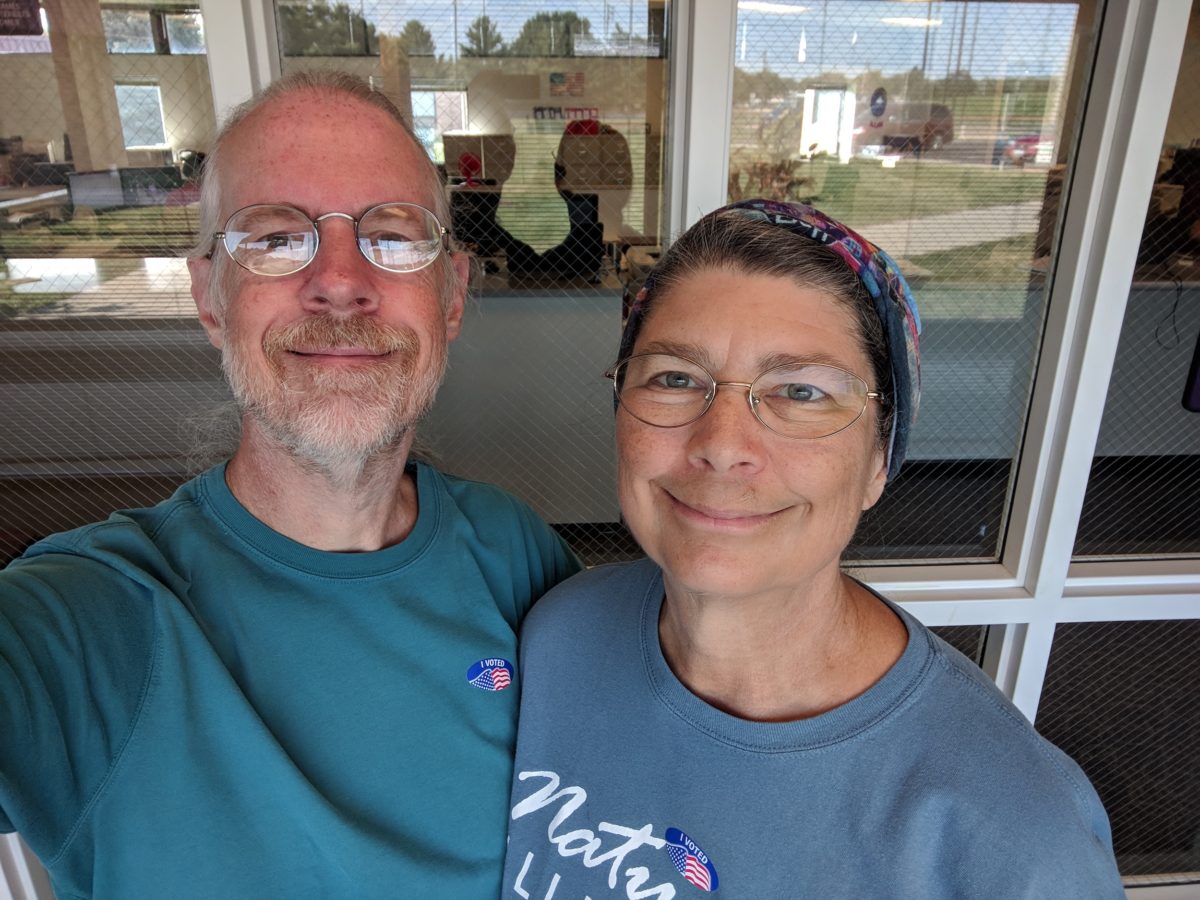After being briefly disappointed that the blue wave didn’t materialize as strongly as I’d hoped, I find that I am nevertheless rather hopeful about the future of our democracy.
This hopefulness springs from two causes. First, there are already more Democratic voters than there are Republican. Second, the Fifteenth Amendment is already part of the constitution.
We’re a majority
The number of votes cast for a Democratic House candidate exceeded the number cast for a Republican House candidate by well in excess of 4 million votes. We’re already in the majority by several percentage points.
The reasons we don’t already control the levers of power are well understood. The Constitution, through the Senate and the Electoral College, give excess power to small states which currently lean Republican. The Republicans have been more shameless about gerrymandering. Voter suppression efforts targeted at ethnic minorities and at the young have been effective at reducing votes for Democrats.
Even if all of those things stay the same, we’re still a majority, and over time that will win out.
We will probably take control even before time (and demographic changes) bring us to that point. All it will take is a leader charismatic enough to produce some modest coattails, and we’ll once again have a Democratic government.
Once that happens, I very much hope, the Democrats will seize the opportunity to put an end to the gerrymandering and the voter suppression. That will put and end to the power of the racist wing of the Republican party, even if the Senate and the Electoral College remain unreformed.
How can that be done? Through the Fifteenth Amendment.
The Fifteenth amendment exists
Under the Fifteenth amendment, Congress has the power to enact appropriate legislation to ensure that “The right of citizens of the United States to vote shall not be denied or abridged by the United States or by any State on account of race, color, or previous condition of servitude.”
The Supreme Court struck down some of the rules enacted to do that, thereby enabling the recent spike in voter suppression. But the Supreme Court did not rule in favor of voter suppression. Rather, its decision turned rather narrowly on the “appropriate” part of the Congress’s power to legislate on the topic.
Supposedly, once the law had been in force for decades, it got too easy for Congress to just extend it, without doing the analysis to justify its appropriateness. Along those lines, the fact that the law treated some states (those that tried to suppress minority votes) differently from other states (those that did not) “despite our historic tradition that all the States enjoy equal sovereignty” was something the court objected to.
These things can be easily fixed. Congress can do the analysis to justify a long list of required and prohibited practices, and can apply those rules to all the states equally.
If we were a minority, the way the Republicans are, I’d be very worried. If we lacked a Fifteenth amendment, and had to fix this state-by-state, I’d be modestly worried.
As it is, I’m not so much worried as I am annoyed by what we’re having to go through at the moment.
Of course, I felt many of the same hopes back in 2012, and look where we ended up. No wonder some people think I’m a hopeless optimist.

